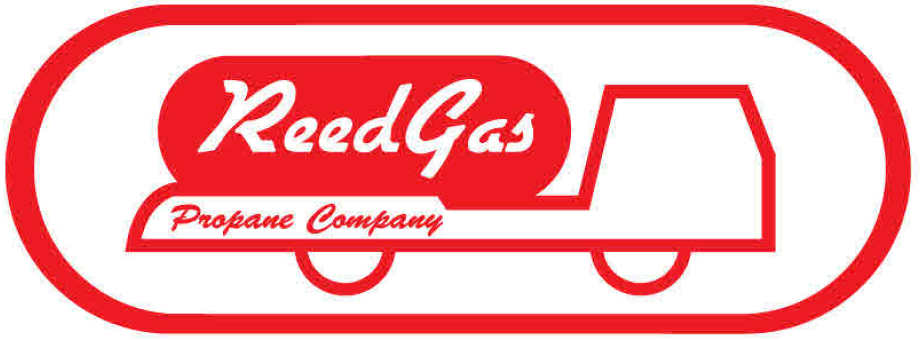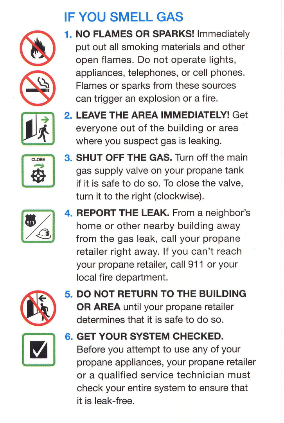
Safety
About 25 million Americans use propane for everything from heating their homes to weeding their farms. But like any fuel, there are things you must know about propane to handle it safely.
Consider these facts:
- Propane is heavier than air. If it leaks, the gas will collect first in low places, so mount gas detectors near the floor.
- Propane is naturally odorless; the smell is created with a chemical additive. If you're unfamiliar with this odor, call us.
If you haven't used a propane-fueled appliance recently, check it carefully. Be sure to sniff around the bottom of the appliance for that distinctive propane smell.
Remember: Whenever you smell a propane odor no matter how weak or strong treat it as serious as a leak. Call our Safety Department if you need any assistance (1-800-737-5273). At ReedGas, your safety is always our top priority.
Can you smell it?
Propane smells like rotten eggs, a skunk's spray, or a dead animal. Some people may have difficulty smelling propane due to their age (older people may have less sensitive sense of smell); a medical condition; or the effects of medication, alcohol, tabacco, or drugs.
Your Best Bet Is A Gas Detector!!
No Odor Detected "Odor Fade"
Under some of the following
conditions, you may not smell a gas leak.so we recommend you install a propane gas detector(s) in accordance with manufacturer's instructions.
Some people (especially the
elderly) are unable to detect the smell of gas.
Colds, allergies, sinus
congestion, and the use of tobacco, alcohol, or drugs, may diminish your sense of smell.
Cooking odors or other strong
odors can cover-up the smell of gas.
On rare occasions, propane gas
may lose its distinctive odor - this is called "odor fade". Air, water, and rust in a propane tank or cylinder may weaken the gas odor, especially if the valves were left open after the
container has emptied.
Sometimes propane gas can lose
its odor if a leak occurs underground.
Odorant in leaking gas can absorb
(stick) to building materials such as unpainted or untreated masonry and rough wall surfaces, to furniture fabrics and drapes, and to the inside walls of gas piping and static or periodically used
propane storage containers and distribution systems.

